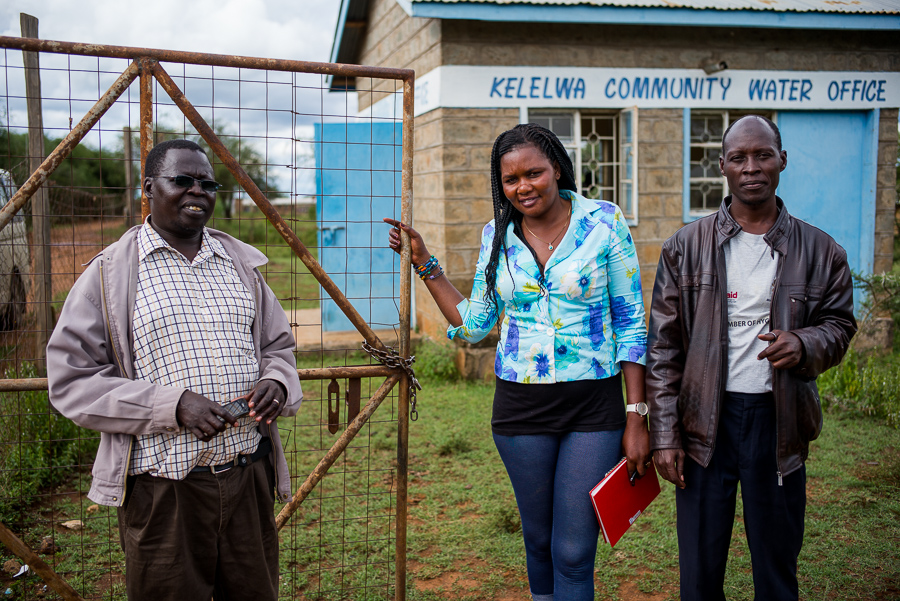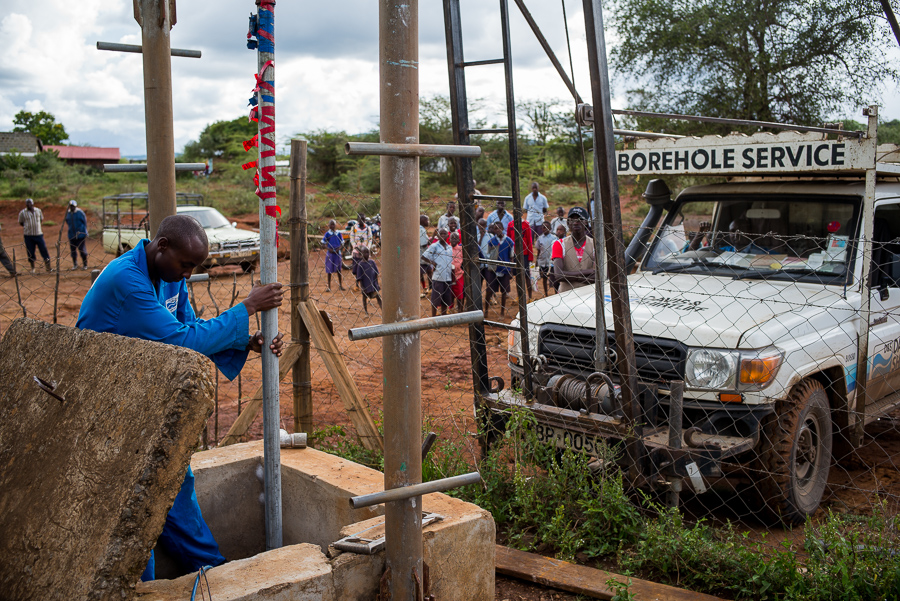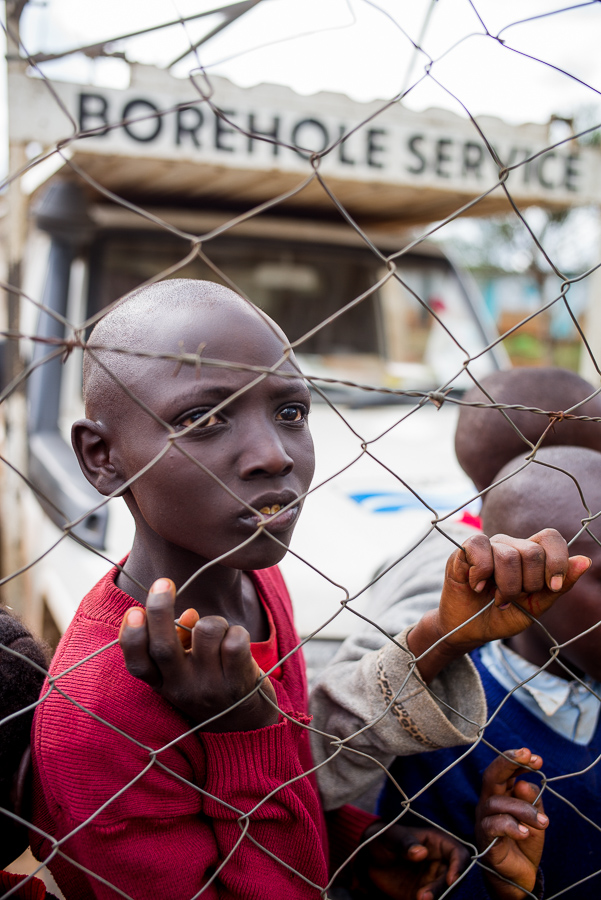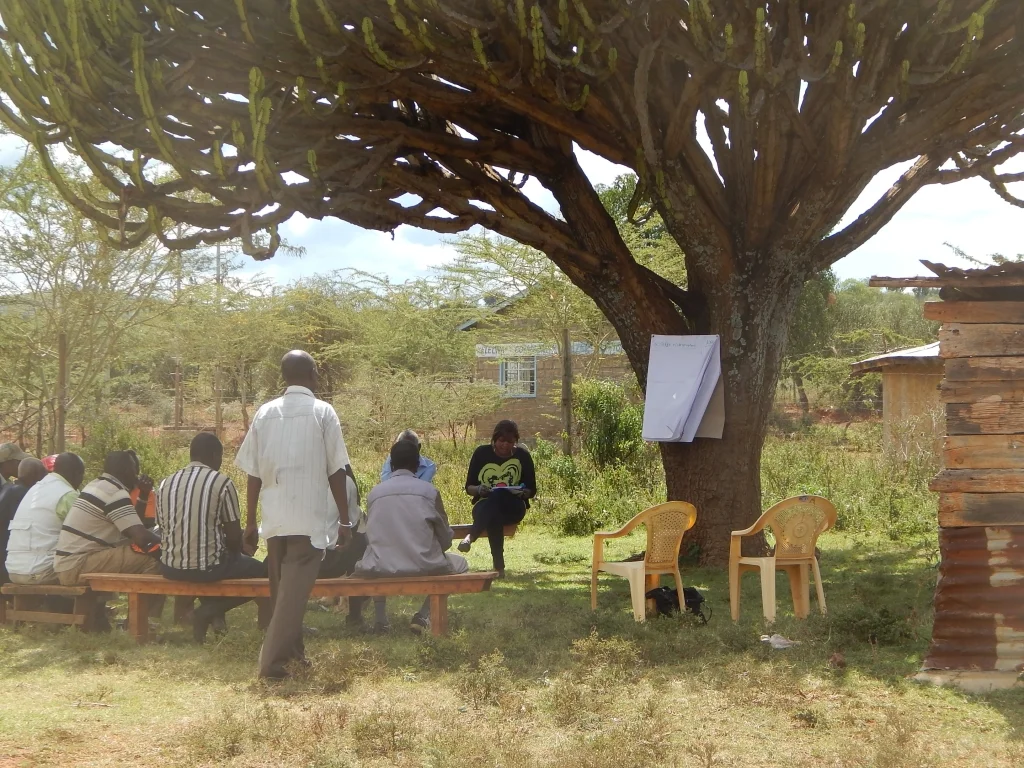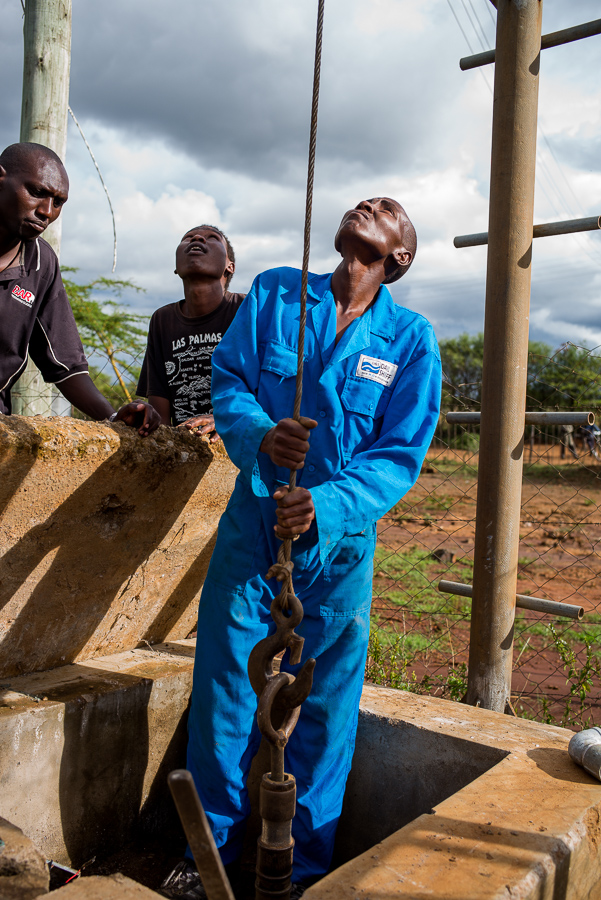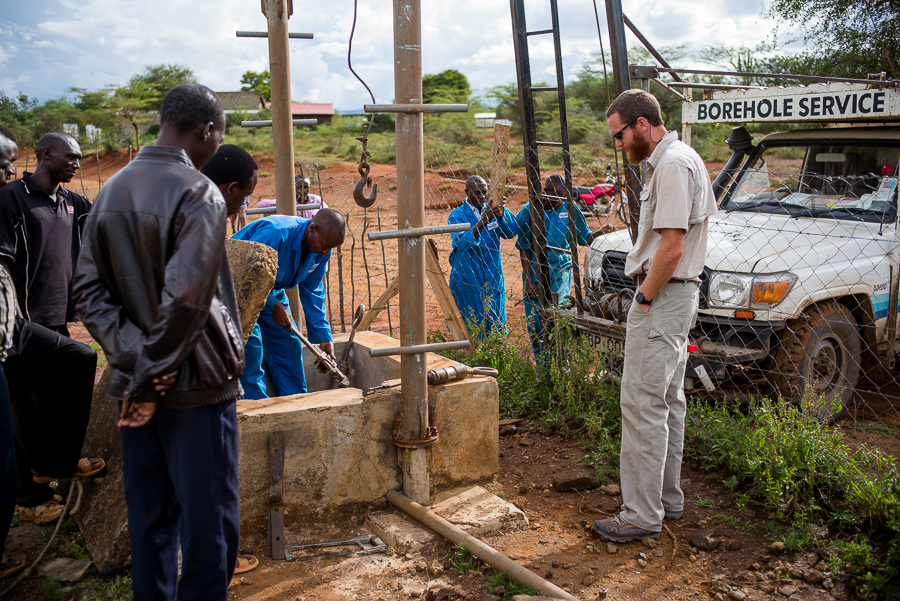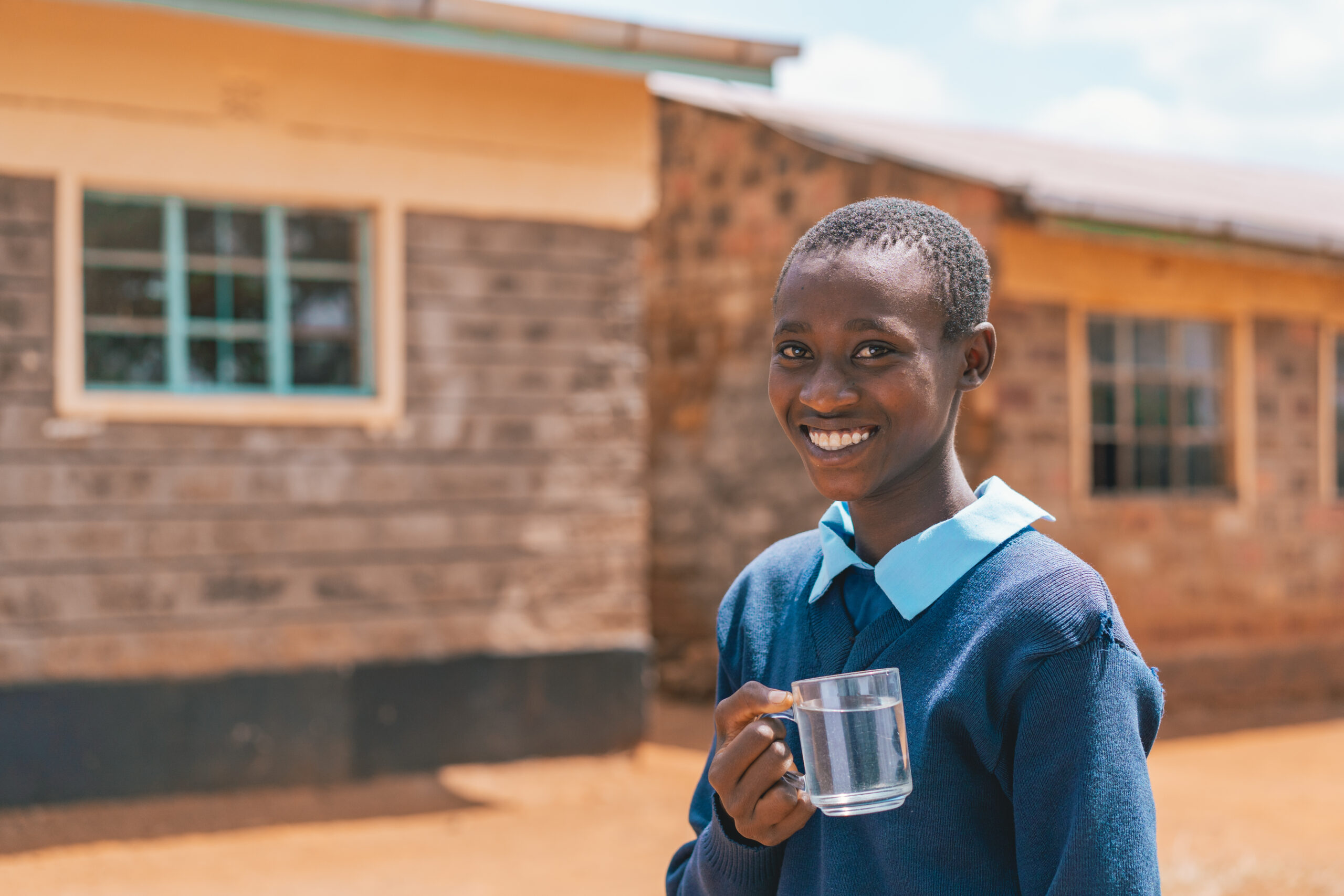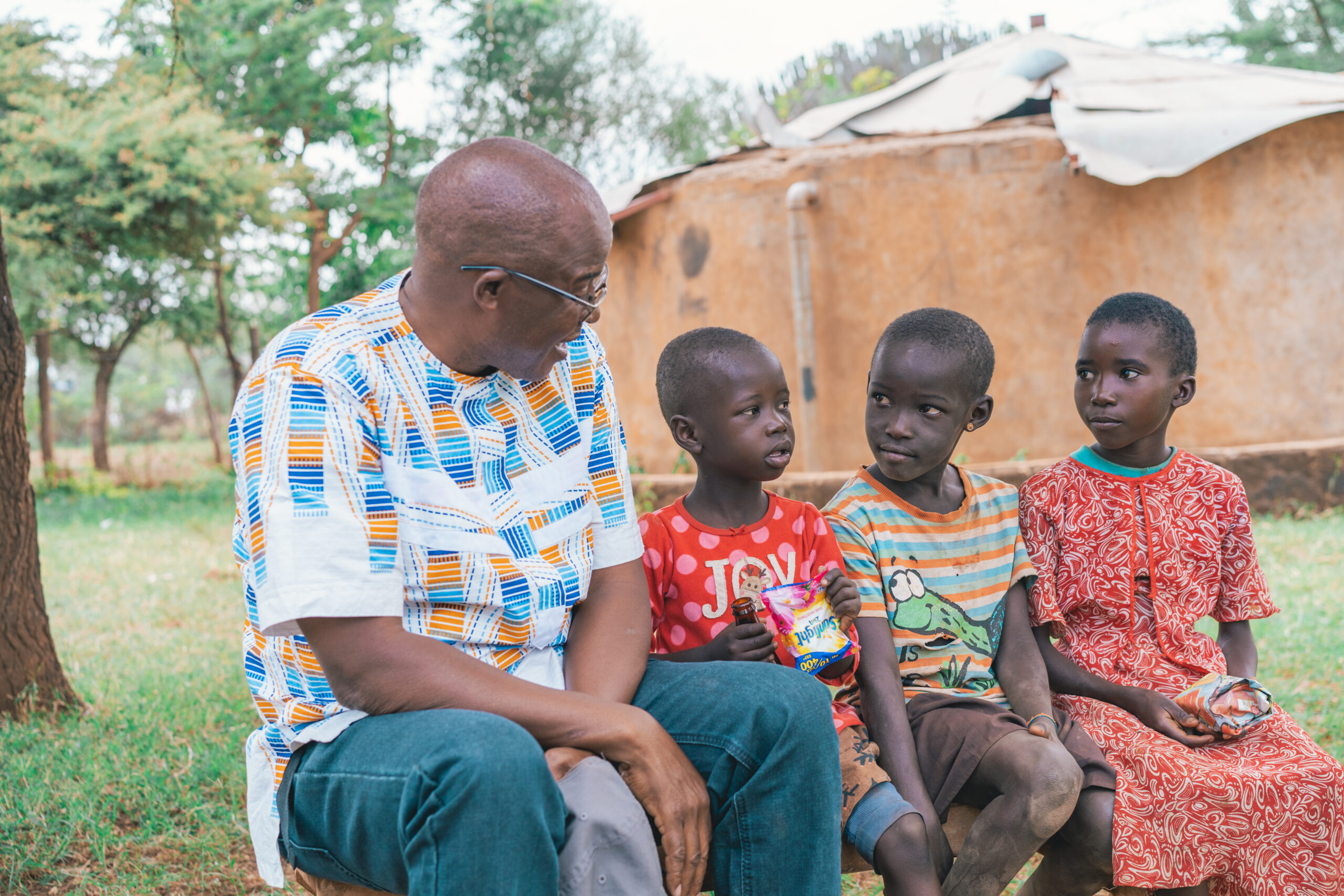Kelelwa, Kenya
How Clean Water Transformed Kelelwa
Kelewa Primary School in Kenya is a story of resilience and illustrates exactly what the Ripple Effect of clean water can do for a community.
Before Well Aware’s involvement, another organization installed a borehole water well, but the system broke down and the community reverted back to relying on the river. But, this all changed in 2015, and we are honored to give you an update on this partner community ten years later.
Kelelwa in 2015
When we first met Kelelwa, they were a pastoralist community of about 2,000 people, moving from place to place and temporarily settling around streams and water. Women and girls traveled up to 12 km (7.5 miles) to fetch contaminated water from the seasonal streams and the Molo River near where they had most recently settled. Oftentimes, it would take an entire day to bring home one jerry can of water. Because of this, the women were forced to be home keepers and many girls could not go to school. Instead, they assisted their mothers in fetching water and housekeeping.
Kelelwa Primary School was very small- enrollment stood at 200 students- with significant challenges. Students that were able to attend school had difficulties concentrating in class, as their days were weighed down by long treks to fetch water from unreliable and often unsafe sources. This was further extended to the community, which lived in a never-ending cycle of water shortage that stifled development and even hope.
According to one of the community members, in the dry season, he used to lose a lot of animals due to drought. This also affected his family as they would often go without meals, causing his children to be malnourished. Some individuals would even perish in the long walks migrating to places near water. These hardships and challenges are now a thing of the past.
Our Project Process
After reviewing the water situation in the area and evaluating the broken-down well in 2015, the Well Aware team determined that rehabilitating the existing borehole was the best and most viable clean water solution for the community. We replaced the pump, repaired the faulty equipment, and conducted community training to enable local leaders to maintain the water system for years to come.
In 2021, Well Aware returned, at the request of the committee, to update the water system. We converted the power source from electric to solar, to further support the project’s long-term sustainability. The school had also raised enough funds to build a pipeline to supply water to the school directly – further enabling improved education for the children of Kelelwa. The project has since become a long-term anchor for the community to congregate and develop around. Today, Kelelwa is full of life and possibilities.
“I’m grateful there’s enough water to drink, use at home, supply to my cattle, and even practice some irrigation.”
Kelelwa Today
Where once classrooms were few and ill-equipped, they now hold the growing population of eager students. The school itself has seen its infrastructure grow with its population. School enrollment has risen today to more than 400 students—a sure testimony of how water has emboldened families to emphasize education. With a source of this commodity assured, every child attends school to fetch water, and the learning environment is changing in ways we never could have dreamed of upon initiating this project. Teachers have also been empowered to know they shape a generation with fewer barriers to learning.
The impact ripples well beyond the school gates. In the surrounding community, clean water has brought health and vitality. The population has grown and they slowly began abandoning pastoralism, replacing their temporary houses with permanent homes. Kelelwa is now a permanent settlement! Agriculture, once a risk due to unreliable rains, has flourished. A big number of the homes have since adopted farming and agriculture as a way of life, with many businesses being started in the area and even forming a small town center. Small farms now dot the landscape, their crops feeding families and boosting incomes. Waterborne illnesses have dropped dramatically, allowing families to focus on their livelihoods.
Now that women no longer spend their days fetching water, they have time to practice their own small business, such as shopkeeping and selling groceries in the local market. This has improved the livelihoods for their families, while also improving gender equality.
Walking through Kelewa today, it’s hard to imagine the struggles of the past. The air is filled with children’s laughter, the scent of flourishing crops, and the vibrant buzz of a community that has found its stride. Kelewa Primary and its surroundings are unrecognizable from the days before clean water—a living, breathing testament to the power of this simple yet profound resource.
This success story continues to inspire us here at Well Aware. It reminds us why we do what we do and pushes us to reach even more communities in need. Kelewa was one of our first projects, and its impact over the years has exceeded even our most ambitious hopes. Where there’s water, there’s life- and Kelewa’s story proves that life, once nurtured, can flourish beyond measure.
“Indeed, Well Aware has had impact in Kelelwa for years and it's going to continue for generations to come.” - Kelelwa Water Committee Chairperson


